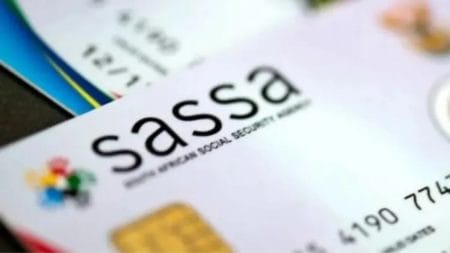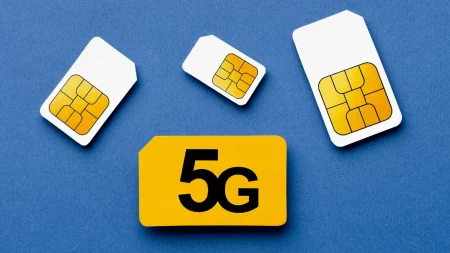South Africa’s social grants provide financial relief to millions of people who depend on them to survive. These grants—such as the Child Support Grant (CSG), Old Age Pension, and Disability Grant—help families afford essentials like food, electricity, and healthcare. However, with rising inflation and increasing living costs, many beneficiaries worry about what will happen if there is no Social Grant Increase.
Understanding the Importance of Social Grants
A Social Grant Increase is essential because social grants are a lifeline for nearly 18 million South Africans, especially those living in poverty. These grants help cover basic needs, such as:
- Food and groceries – Many families rely on grants to buy enough food for the month.
- Transport – Beneficiaries use some of their money for transport to clinics, schools, or job interviews.
- Education – School supplies, uniforms, and transport fees are often paid using social grants.
- Healthcare – Some recipients need the grant for medication, doctor visits, or special care.
Without these grants, many families would struggle to survive, especially in rural areas where employment opportunities are scarce. If there is no Social Grant Increase, these struggles will only get worse.
What Happens If There’s No Social Grant Increase?
If grants remain the same while food prices, transport costs, and electricity tariffs keep rising, families will struggle even more to afford basic necessities. Let’s look at the major areas that will be affected:
Food Security Will Be at Risk
With food prices increasing, many households already struggle to buy enough groceries with their grant money. If there is no Social Grant Increase, beneficiaries may have to:
- Reduce portion sizes
- Eat fewer meals per day
- Buy cheaper, less nutritious food
This could lead to malnutrition, especially in children, the elderly, and people with chronic illnesses.
Learn More: Stats SA Updates Inflation Basket: What’s In, What’s Out, and Why It Matters
Children’s Well-being Will Be Affected
Parents who rely on the Child Support Grant will struggle even more to provide for their children. Many children already go to school hungry, which affects their ability to concentrate and learn. If there is no Social Grant Increase, more children may:
- Drop out of school because parents cannot afford transport or school supplies
- Suffer from poor health due to malnutrition
- Face emotional stress and anxiety due to financial struggles at home
Elderly People Will Struggle to Survive
Many older South Africans depend solely on the Old Age Grant to cover food, electricity, and medication. If there is no Social Grant Increase, pensioners may have to:
- Choose between buying food or medication
- Cut down on electricity usage, leading to poor living conditions
- Struggle with loneliness and mental health issues due to stress and isolation
People With Disabilities Will Face More Hardship
The Disability Grant helps many recipients afford medical expenses, assistive devices, and transport to healthcare facilities. Without a Social Grant Increase, disabled people may struggle to:
- Buy essential medication or medical equipment
- Pay for transport to doctor visits or therapy sessions
- Maintain a decent standard of living
More Families Could Fall into Debt
With grant money covering less than before, some families might turn to loans from loan sharks (mashonisas), leading to:
- High-interest debt
- More financial stress
- Risk of losing possessions if they can’t repay loans
Unemployment Will Become a Bigger Problem
Without a Social Grant Increase, job-seeking will become harder because:
- Beneficiaries won’t afford transport to look for work
- Small businesses run by grant recipients may struggle to stay open
- Parents may have to stop job-hunting to care for children at home
The Economy Will Suffer
A Social Grant Increase is not just about beneficiaries—it also impacts the economy. Social grants contribute to the economy because people spend their grant money on local businesses. If there’s no increase, spending will drop, affecting small businesses and local markets. This could lead to:
- Job losses in industries that rely on grant recipients
- Slower economic growth
- Increased poverty levels
What Can Be Done?
If there is no Social Grant Increase, beneficiaries may need to:
- Budget carefully – Plan monthly expenses to avoid unnecessary costs.
- Look for alternative income sources – Small businesses, side hustles, or community projects can help.
- Seek food relief programs – Many NGOs and churches provide food parcels and soup kitchens.
- Join community support groups – Sharing struggles and solutions can help individuals cope better.
- Advocate for change – Beneficiaries and organizations can petition the government to approve a Social Grant Increase.
What Is the Government’s Role?
The South African government must consider:
- Approving a Social Grant Increase to ensure beneficiaries can afford essentials.
- Adjusting grants for inflation to maintain financial stability for recipients.
- Increasing food security programs to help struggling families.
- Creating more job opportunities to reduce dependency on grants.
- Supporting small businesses run by grant recipients.
Learn More: Social Grants and Education: How Financial Support is Changing the Future for South African Learners
A freeze on grant increases will have serious consequences for millions of South Africans. The cost of living is rising, and without a Social Grant Increase, food security, healthcare, education, and overall well-being will be at risk. It is crucial for the government to consider grant adjustments to protect the most vulnerable members of society.










